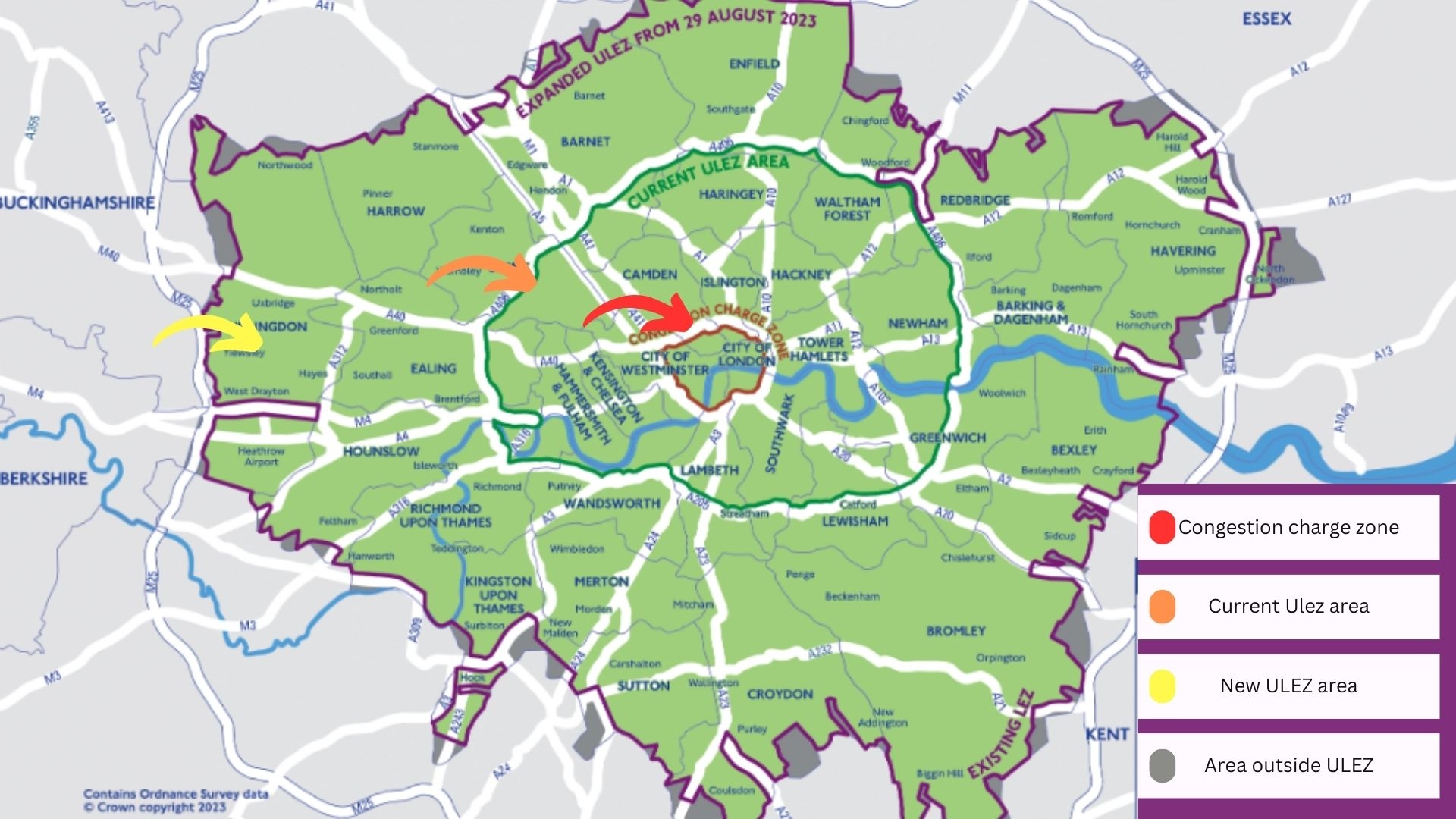
How London Businesses Adapt to ULEZ & Low Emission Standards
London has been taking significant steps to address the environmental challenges posed by air pollution and carbon emissions.
The introduction of the Ultra Low Emission Zone (ULEZ) and low emission standards is reshaping the way businesses operate within the city.
The Ultra Low Emission Zone (ULEZ) is a designated area in central London where vehicles need to meet stringent emission standards or face charges to enter. This initiative aims to reduce harmful air pollutants and improve air quality. The introduction of low-emission standards emphasizes the importance of reducing carbon emissions and promoting cleaner transportation alternatives.
ULEZ and low emission standards have far-reaching implications for businesses operating within the zone. Delivery services, logistics, and fleets must now navigate the challenges of emission compliance while maintaining operational efficiency. Businesses that rely on older vehicles may face substantially increased costs due to emission-related charges.
Companies are leveraging technological advancements to integrate electric charging infrastructure into their operations, thus facilitating the widespread adoption of electric vehicles. In doing so, they are not only minimizing their carbon footprint but also embracing a pivotal role in the city's broader vision for sustainability.

1. Crafting Compliance Strategies
Businesses are adopting various strategies to comply with ULEZ and low emission standards. Transitioning to low-emission vehicles, such as electric or hybrid cars and vans, is a common approach. Optimizing delivery routes and using cleaner fuel alternatives are also becoming essential strategies to minimize emissions. Although acquiring a low-emission car can often be more expensive than a petrol or diesel car, one thing businesses operating outside of London - but travelling into London can do to mitigate the costs is to hire an EV and look into a temporary car insurance policy.
2. Transitioning to Low Emission Vehicles
A significant trend among London businesses is the shift towards low-emission vehicles. Embracing electric and hybrid vehicles not only aligns with environmental goals but also offers financial benefits in the long run. Reduced fuel costs and exemptions from emission charges contribute to potential cost savings.
3. Investing in Eco-Friendly Infrastructure
As the demand for low emission vehicles grows, businesses are investing in charging infrastructure to support their adoption. Charging stations strategically placed around the city enable businesses to efficiently operate their electric fleets. This investment not only aids in compliance but also demonstrates a commitment to sustainability.
4. Leveraging Incentives and Support
London businesses are leveraging various incentives and support programs to ease the transition to low-emission vehicles. Government grants, tax incentives, and financial support are available to encourage businesses to make environmentally conscious choices. These incentives play a pivotal role in accelerating the adoption of cleaner transportation options.
5. Shaping a Sustainable Future
The ULEZ and low emission standards are driving London businesses to reevaluate their operations and embrace sustainable practices. The transition to low-emission vehicles, investment in charging infrastructure, and the use of incentives demonstrate the business community's commitment to both regulatory compliance and environmental responsibility. As London evolves into a greener city, businesses are at the forefront of these changes, actively shaping a future where clean air and sustainable practices go hand in hand with successful enterprises.
Trending
-
1 How IoT is Revolutionizing Sustainability: A Brighter Future Beckons
Susanna Koelblin -
2 How The Water Treatment And Desalination Will Change The Environment For The Better
Daniel Hall -
3 How Intermediate Bulk Containers Enhance Environmental Sustainability
Daniel Hall -
4 Hybrid Cars and Their Key Benefits
Susanna Koelblin -
5 UK Faces Wettest July in Recent Memory
Daniel Hall





Comments